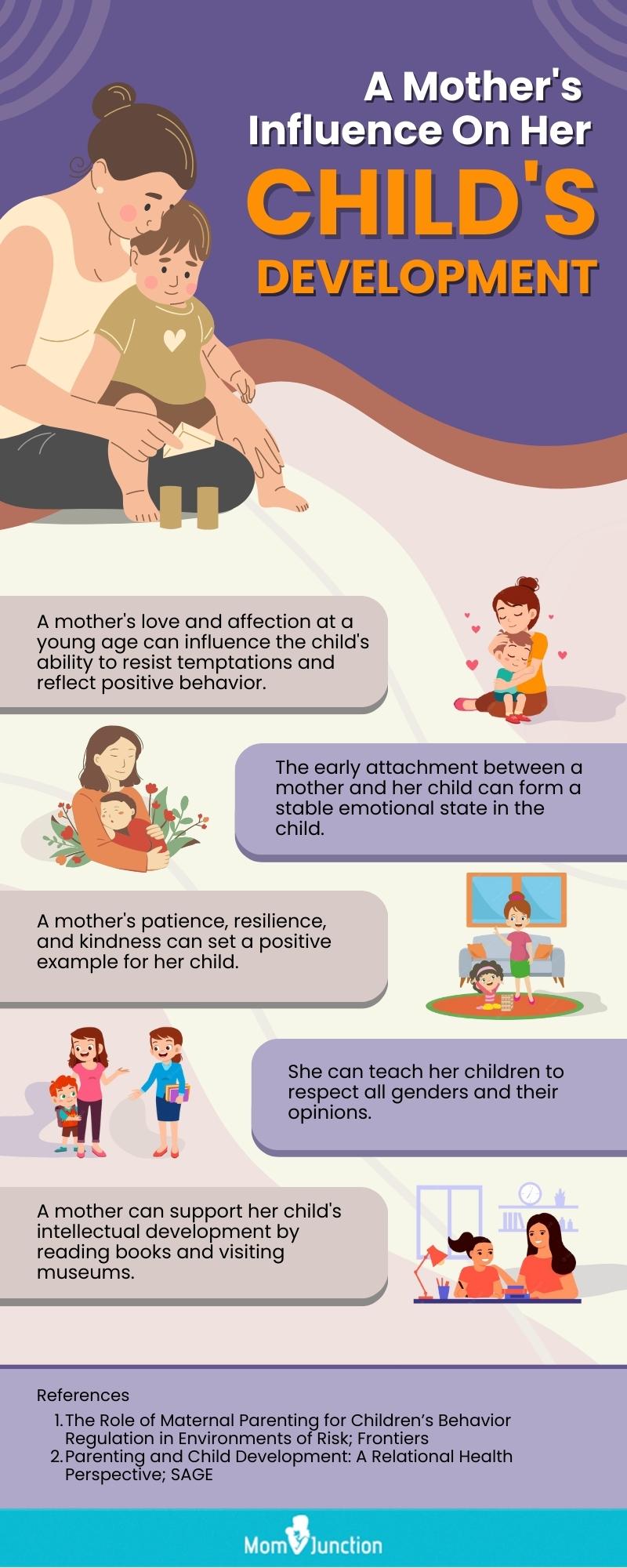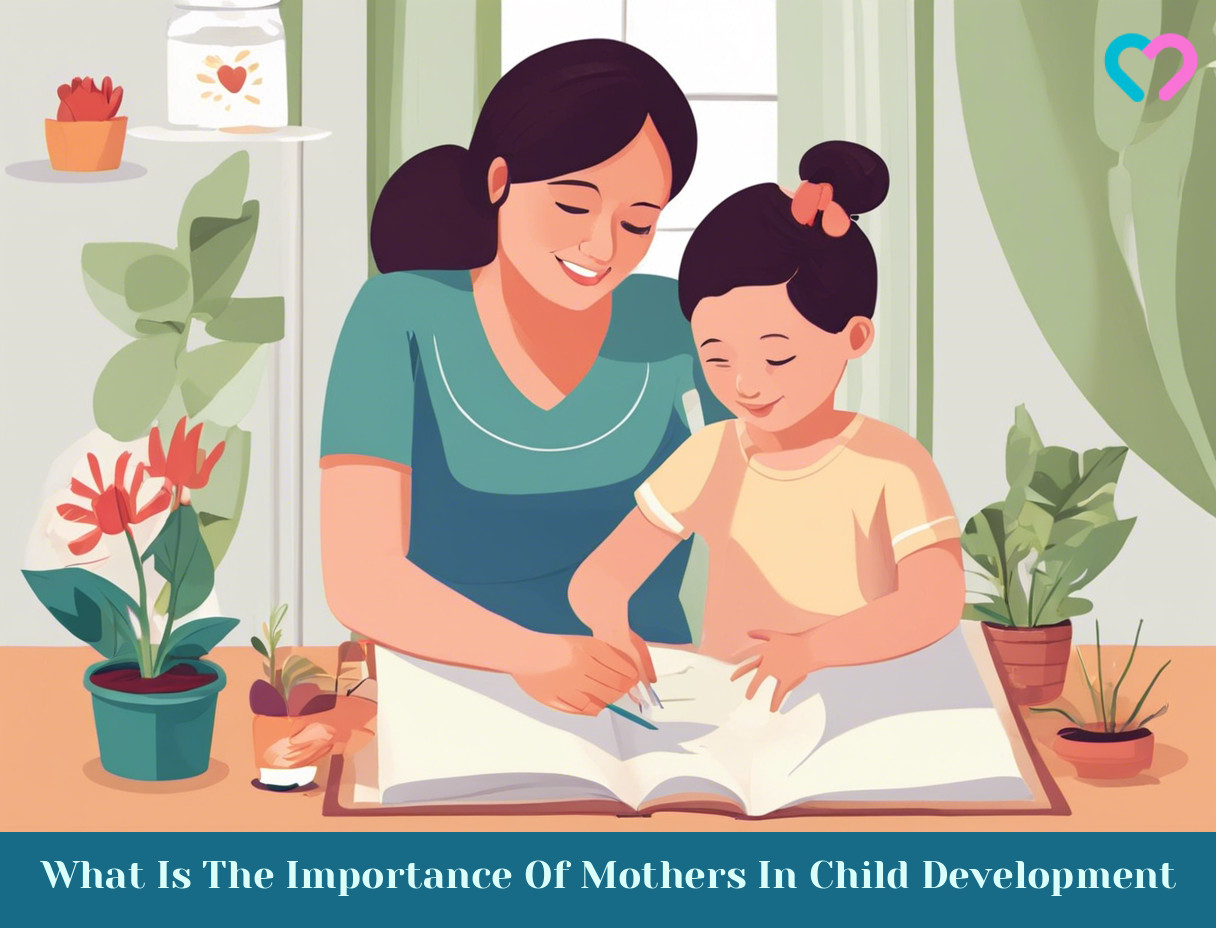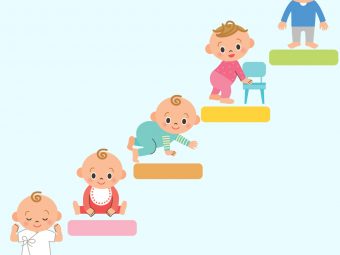
Image: ShutterStock
A mother has the biggest influence on her child, and their relationship develops from when the baby is in the womb. In this post, we discuss a mother’s influence on child development.
Becoming a mother is a life-long responsibility and is filled with moments of happiness, pride, and emotions. It can very well be called a roller coaster ride.
And a child always looks up to their mother for guidance, advice, and support. So, you sure have a very important role in their lives. Read on to know more about the ways in which you can influence your child’s development.
The Nine Different Roles Of A Mother In Child Development
There is so much you constantly do for your child, knowingly and unknowingly. Here are eight roles you will play as a mother in your child’s development:
1. Build the first bonds of emotional attachment
As a mother and the primary caregiver in your child’s earliest days, weeks and months, you are your child’s first link of any emotional bonding and attachment. Your baby will learn their first emotions in relation to you.
The way you bond with your baby in the earliest months and years will leave a deep impact on your child’s overall well-being and development. You will become your child’s role model and the mother and child relationship will greatly influence the way they behave in social and emotional settings, especially in later years.
As a mother, how soon you react to your child’s needs and how nurturing you are to those needs will teach your child a lot about understanding others’ and their emotional requirements.
Tip: Be attentive towards your child, no matter how small or unimportant their need may seem to you.
 Do remember
Do remember2. Teach them about trust and security
If you want to know the importance of mothers in child development, you need to learn this. Two very important life skills that your child will learn from you are learning to trust and providing emotional security.
As a mother, you have the onus of teaching your child about the importance of being able to trust and be trustworthy. If your child can trust you, they will have confidence and high self-esteem.
Be around when your child needs you and always make sure you support them and encourage them to do better. Your encouragement will show your child that your love for them is a constant, and it will make them more secure.
Tip: Be honest with your child and teach them the importance of always telling the truth. Assure them of your unconditional love and support every day, so that he feels secure.
3. Be sensitive
As a mother, there will be times when you feel that nothing is going the planned way. It is natural to lose your cool and give up in despair, but wait. Think from the point of view of your child.
Your child will learn a big lesson in life from you – that of being sensitive towards others’ needs and thoughts.
As a mother, you may have a certain way of looking at things and doing tasks while your child may have an entirely different view. Understand your child’s perspective too. If you feel that your child is wrong, try and explain to them what you feel he can do differently.
Tip: Never look down on your child’s way of thinking. Understand why they feel the way they do and talk to them about it. Try to connect with your child before you criticize them.
 Point to consider
Point to consider4. Be kind and loving
The way you behave towards your child will have a lasting impact on your child’s development throughout their childhood as well as their adult years.
Always be kind and loving towards your child, no matter how stressed or angry you are. Your response to your child’s day-to-day activities and needs will show them the importance of being loving towards others.
The way you speak to your child and others around you will teach your child about dealing kindly with others.
Tip: Be kind and loving in your regular interactions with your child.
5. Let them know that family is about being together
Your child will very soon learn the meaning and importance of a family, especially from you.
The way you interact with other members of your family will teach your child about many important relationships in life.
Make sure you introduce your child to different family members and take them to various family outings. Make family time a regular affair at home.
Tip: Encourage your child to spend more time with everyone in the family and have family meals together.
6. Have a positive attitude
Sure life is tough, but how you handle your problems can teach your child about the importance of having a positive attitude.
Your response towards various problems, whether small or big, will show your child that having a positive attitude can help overcome many difficulties. Try to make the child understand in their own language by formulating stories around real-life events.
Be positive and teach your child always to think positive. Encourage your child to learn from their mistakes and never to give up. our child may not understand it now, but as they grow up, they will appreciate the lessons they learned from you.
Author and blogger Qasim Adam illustrates this point the best by narrating the life lessons he got from his mother. Adam says, “When I was younger, my mother used to tell me stories about how she had to fight for everything in life… My mother often tells me about the struggles she faced growing up. Despite these difficulties, my mother always had confidence in herself. She would tell me that no matter what obstacles life throws at you, it is possible to overcome them all. I think about these words every day and try to put them into action. If my mother can be confident in herself even when times are hard, I should do the same no matter what challenges come my way. Remembering this lesson from my mother has helped me become more confident in myself (i).”
Tip: Wherever you go through a problem you can discuss with your child, tell him about it and how you think you will deal with it.
7. Encourage your child to work hard
No one can teach your child the value of hard work as much as you can!
Your child may feel that working hard is something that makes you tired at the end of the day. But remind them of the immense pleasure and satisfaction it gives you to ensure your child’s well-being.
Also, when your child puts in effort to participate in any activity or help you in any tasks, do not praise them for their results but their dedication and hard work.
Tip: Encourage your child to participate with you in different tasks and appreciate the hard work not the result.
8. Teach them the importance of discipline and routine
In their earlier years, your child will be most comfortable while following a set pattern in their daily life.
Show your child how you effectively manage time and commitments by following a routine.
Teach your child the importance of discipline and make sure you also follow some basic routines in your daily life.
Tip: Sit with your child and chalk out a daily routine. Show your child how it will help them accomplish more tasks in a smaller amount of time.
9. Let them practice empathy
Your child may or may not be a sensitive person. So, it is important to teach them the importance of empathy and how to practice it.
To teach them empathy, you can demonstrate it in your actions and interactions with others to set an example for your child.
You can even put forth certain scenarios and ask them how they would react and then share how they can be more emphatic in those situations.
Tip: Watch movies or read stories that clearly depict the importance of empathy. Ask them to observe carefully to understand how to be more sensitive to others feelings.
Frequently Asked Questions
1. How does a mother’s mental health affect a child’s development?
A mother’s mental health affects a child’s development in several different ways. For instance, if a mother struggles with mental health issues, she might have difficulty regulating her emotions, giving way to inconsistent emotional responses towards her child. This, in turn, might lead to the child feeling anxious and insecure.
2. How does a mother’s emotional availability impact a child’s emotional regulation?
When a mother is emotionally available for her child, it helps the child feel secure and validated and helps in regulating their emotional intelligence. On the other hand, when a mother is not emotionally available for her child, they may grow up learning to suppress their emotions, which increases the chances of depression and anxiety.
3. How does a mother’s parenting practices affect a child’s social, emotional, and cognitive development?
A mother’s parenting practices can affect a child’s social development by influencing their ability to form positive relationships with others. Children who are brought up with emotionally available parents grow up with a better sense of self.
A mother is the one who is with the baby before its arrival and every moment later. She knows what her little one wants and learns naturally about the right ways of upbringing. Hence, every gesture, action, and behavior of a mother greatly influences the child’s character. A mother needs to wear a positive behavior as the baby takes every little aspect of her dear mom and incorporates it into their lifestyle.
Infographic: Ways In Which A Mother Can Influence Child Development
Mothers play a crucial role in the development of their children. From the moment a child is born, their mother is the primary caregiver. Through the love, attention, and guidance a mother provides, she can positively shape her child’s development. So, explore the maternal influence on a child’s development through this infographic. Illustration: Momjunction Design Team
Key Pointers
- Mothers, being the primary caregivers, play a crucial role in a child’s formative years.
- The emotional attachment formed in the early years can have a lasting impact on the child’s well-being.
- Trust and empathy from the mother create a safe and secure environment for the child.
- Encouraging your child with a positive outlook helps in building their confidence.

Image: Stable Diffusion/MomJunction Design Team
A mother plays one of the most important roles in a child’s growth and development. Learn how mothers shape their child’s early development. Celebrate the role of mothers in their child’s lives!
Personal Experience: Source
MomJunction articles include first-hand experiences to provide you with better insights through real-life narratives. Here are the sources of personal accounts referenced in this article.
i. Seven lessons my mother taught me about life;https://medium.com/illumination/7-lessons-my-mother-taught-me-about-life-279ab64b65fa























